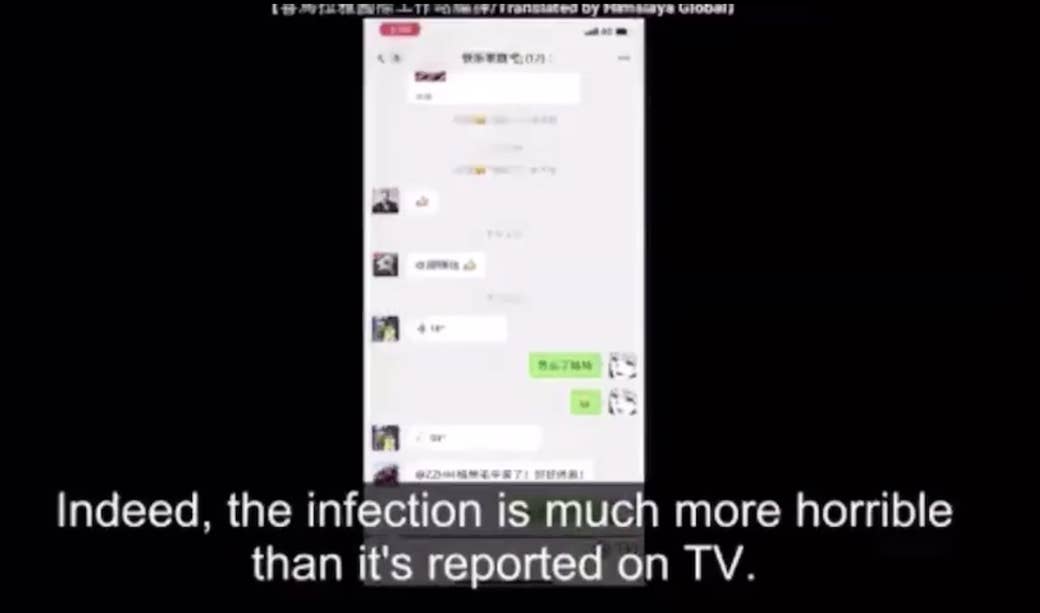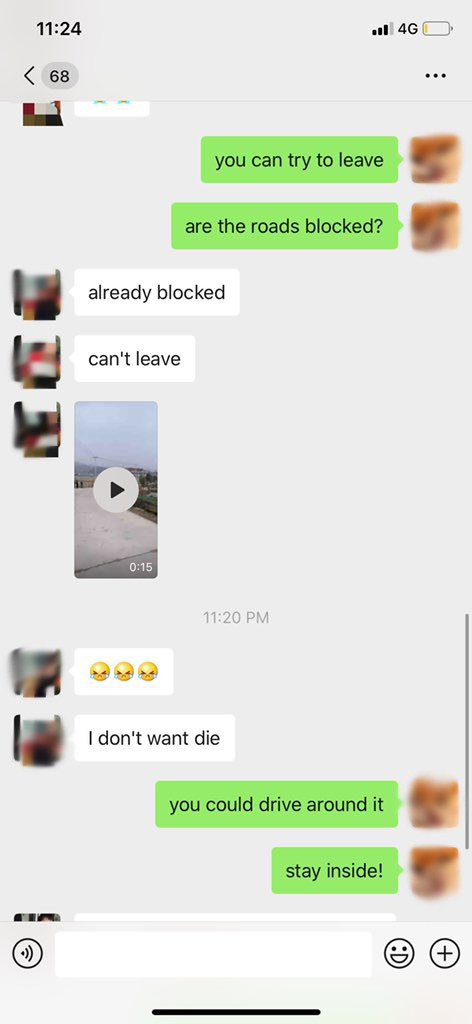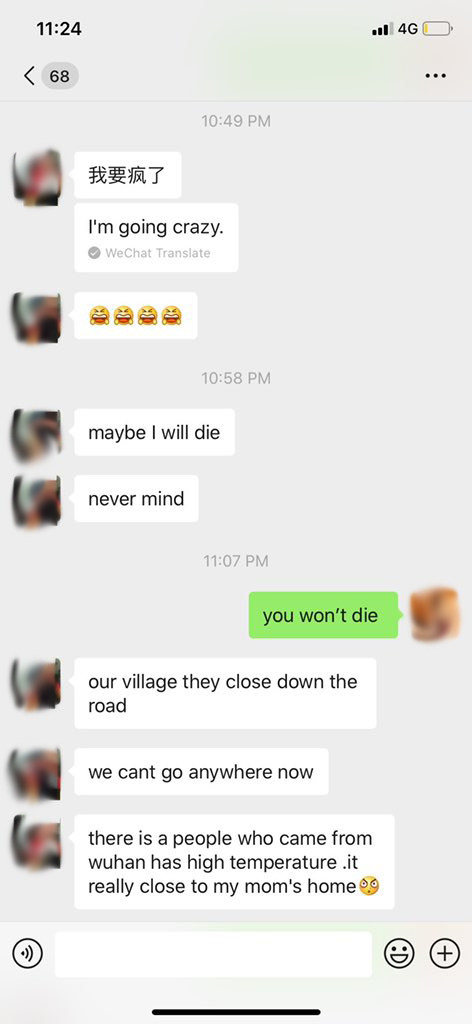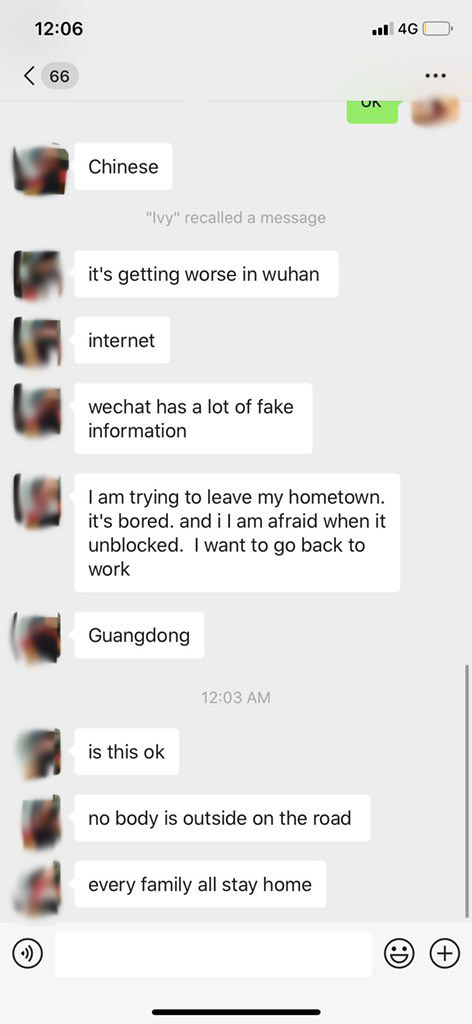
As reports of coronavirus cases spread across China, the country’s popular WeChat messaging app has been filled with rumors, hoaxes, and videos filled with unconfirmed information that have rattled ordinary people — and proven difficult for the Chinese government to stamp out.
Police in Wuhan have arrested at least eight people for "spreading rumors” about the coronavirus, according to state media, and there are reports that up to 40 people have been investigated for similar charges around the country. The initial eight who were detained in Wuhan were doctors, at least one of whom had contracted the virus while treating patients. The government crackdown on online rumors is routinely used to censor information the party doesn’t like, even if it is in fact true and not misinformation at all.
WeChat, in a statement provided to BuzzFeed News, said that it is taking actions against bogus information including marking content as false, taking down posts, or blocking accounts that publish disinformation temporarily or permanently.
"We have rolled out a variety of tools and features on the platform to help users stay safe and protect themselves against the ongoing Coronavirus epidemic," the statement read. "Importantly, this includes debunking false rumors."
In less than a month, the newly identified virus in Wuhan, China, has turned into an outbreak infecting more than 6,000 patients, with 132 deaths reported. The government has quarantined 50 million people in central China, banning travel in response to a small number of air travel–related cases, all nonfatal, which have spread to more than a dozen countries.
“This outbreak is unrolling right in front of our eyes,” CDC’s Nancy Messonnier, director of the National Center for Immunization and Respiratory Diseases, said in a Monday briefing.
In the US, there are now 5 confirmed cases of coronavirus, all occurring in travelers from Wuhan, and an additional 110 people under observation, according to Messonnier. “The general risk to the [US] public is low at this time,” she added.

Outside China, online confusion about the virus is rampant, with supporters of the pro-Trump QAnon movement and the anti-vax community fixating on the disease. This has been exacerbated by the spread of false information by official Chinese sources. State media and Lijian Zhao, deputy director general of the information department in the Chinese Ministry of Foreign Affairs, posted a video on Twitter of the construction of an apartment building hundreds of miles away to falsely claim a new hospital had been built in Wuhan.
WeChat started as a messaging service but has evolved into something closer to an operating system for daily life in Chinese society. It has a newsfeed, a payment system, an Instagram stories–like “Moments” feed, has integrations with a third-party Uber-like ride-hailing service, and a search engine.
As a part of the Chinese Communist Party’s mass surveillance, WeChat has been censoring “sensitive" content for almost a decade. Its importance to the Chinese state is so pronounced that the app added a coronavirus “whistleblower” feature, which allows users to send information to the government about how the outbreak is being handled by local officials.
Since the beginning of the epidemic, WeChat has been the country’s main hub for sharing information. In one “Americans in Wuhan” WeChat group text seen by BuzzFeed News, hundreds of panicked expats crowdsourced information about trains and flights leaving the city and traded reports of infection rates.
"They concealed the true danger for almost a full month," one user wrote, speculating that the infection rate was much higher than state media reported.

Chris, an American photographer living in Guangdong, hundreds of miles away from the epicenter of the outbreak, who requested BuzzFeed News not publish his last name due to fears of arrest, said almost every WeChat group he’s in has been inundated with messages about the coronavirus.
“I just have a bunch of friends who are trapped [in Wuhan],” he said. “They are feeding me and my group of friends whatever information they can get.”
Chris said that he’s currently on an island in the Hunan province, which he and his friends decided to visit for Lunar New Year. He assumed the island is one of the safer places to be and planned to wait out the virus there as long as he could. He said that as of Tuesday, the island has been largely deserted.
“We can’t get any info from the hospitals...only secretly from the doctors,” he said. “What we have heard from the doctors and nurses is that it’s absolutely insane.”

One of Chris’s friends in Guangdong province, a Chinese woman named Ivy, sent him panicked messages Tuesday saying small towns in the area were being evacuated.
“[T]hey will close down the road,” Ivy said to Chris over WeChat. “We can’t go anywhere now. There is a person who came from Wuhan who has a high temperature. It’s really close to my mom’s home.”
Ivy told Chris that her village was out of masks and sent Chris a video of public workers putting rocks and dirt on the road to block people from leaving, and warning residents that if they intended to do so, they had to leave immediately.
“I don’t want to die,” Ivy wrote.

She said the most common unconfirmed rumor spreading across WeChat came from an audio clip of a woman claiming to be a nurse, reporting that 100,000 people had been infected with the coronavirus. The rumor went viral enough on WeChat, Ivy said, that the Chinese government sent out a message saying it was false.
Ivy doesn’t trust the Chinese government’s official infection numbers — 4,631 confirmed cases. “I think of course it’s more than 4,631,” she said.
WeChat announced on Sunday it would shut down accounts spreading confusion about the coronavirus and hired a third-party agency to debunk rumors. Meanwhile, the nurse audio has been translated into English and now going viral on TikTok.
